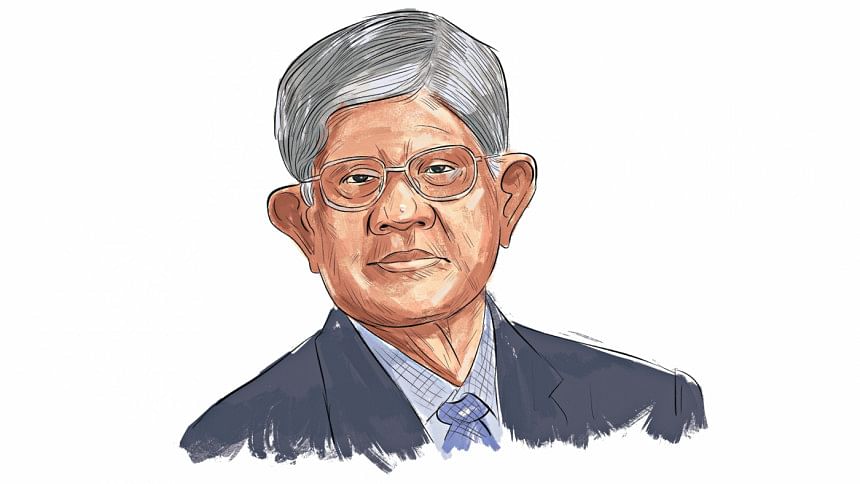Bangladesh badly needs economic reforms: Salehuddin

Bangladesh badly needs economic reforms at this moment, said Finance Adviser Salehuddin Ahmed yesterday.
"We are talking about reforms in areas like political reforms, economic reforms, and the electoral process. All are important. But at this moment, we badly need economic reforms," he said.
He made these remarks while speaking at an event marking International Customs Day at the National Board of Revenue (NBR) headquarters in the capital's Agargaon.
Acknowledging the "complexity" of implementing economic reforms, Ahmed said while the task was difficult due to numerous procedural laws and regulations, their proper and transparent application was critical for progress.
"We have some updated systems, but we can't use them properly," he said, pointing to inefficiencies in governance.
The adviser also expressed dissatisfaction with the delayed implementation of the National Single Window, a project initiated in 2017 but only partially launched last month.
He also urged businesses to actively cooperate in enabling revenue collections.
"We don't expect any illogical or illegal demands from you (businesses). You just pay your taxes. I assure you, no one will make unjustified or illegal demands, either officially or through unofficial means under the table," he said.
Ahmed called on the NBR officials to strengthen their efforts to meet revenue collection targets.
"This year is a challenging one, so we want to move forward," he said.
Addressing criticism over rising commodity prices, Ahmed said, "When rice prices increase, it is as if people think they have reached Tk 1,000."
"Prices of some items go up while others decrease. The government is putting in the efforts to address these issues," he said.
Ahmed urged for balanced criticism, adding, "Criticise our shortcomings, but also acknowledge the good work we do."
NBR Chairman Md Abdur Rahman Khan highlighted the agency's use of customs as a trade facilitation tool.
Khan pointed out the reluctance of businesses to maintain proper transaction records to avoid paying the full amount of taxes.
"While rural people and RMG workers have swiftly adopted mobile financial services, businesses are avoiding automation to evade value added tax (VAT) and tax by not keeping transaction records," he said, criticising businesses for their reluctance to adopt automation.
Addressing import-related challenges, Khan highlighted concerns over widespread misdeclaration at the import stage, describing it as a persistent issue.
"Misdeclaration during imports is a significant problem, and we are determined to eliminate this malpractice," he said.
Khan also acknowledged reports of misconduct among some revenue officials and assured that strict measures would be taken to address such behavioural issues.
"We are committed to ensuring accountability, and any misconduct by officials will be met with firm action," he added.
The event was attended by Md Hafizur Rahman, administrator at the Federation of Bangladesh Chambers of Commerce and Industry, and Finance Secretary Khairuzzaman Mozumder.

 For all latest news, follow The Daily Star's Google News channel.
For all latest news, follow The Daily Star's Google News channel. 



Comments